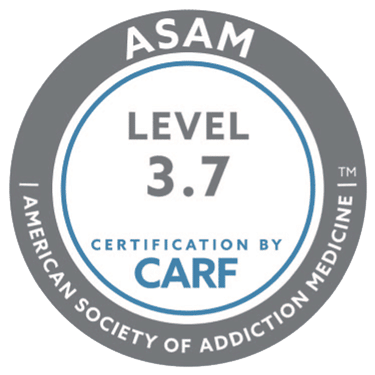Statistics state that around 265 Americans die each day due to drug overdose. While some of these cases are accidental, most of them are related to mental health issues.
The ongoing battle with substance abuse continues to be a growing concern across the globe and requires comprehensive medical approaches.

However, even if we have access to various treatment methods, the situation will continue to worsen if we don’t treat addiction as a medical condition. In response to this, researchers develop programs such as outpatient rehab to encourage people to seek therapy.
Definition of Outpatient Rehab
Outpatient rehab allows clients to receive counseling and therapy while attending to their daily routines. After the program’s allotted hours, patients can continue living at home with their families as they recover.
This treatment plan and program works best for those who:
- completed an inpatient rehab program
- are in the early stages of alcoholism or addiction
- want a less expensive treatment
- has other mandatory obligations and commitment
- wants additional support to prevent relapse
Each session of outpatient rehab can take up to three hours per day and last for three to six months. However, the patient can always request extended assistance if they feel the need to do so.
Importance of Outpatient Rehab
Outpatient rehab helps eliminate the risk of relapse and the worsening of the early stages of addiction.
The long-term adverse effects of alcohol and drug addiction become more dangerous the further it stays unaddressed and untreated. Drug and alcohol cravings are common during detox and can be difficult to overcome, often leading to relapse. That said, it’s essential to nip the issue in the bud to reduce the chances of potentially fatal disorders.
According to the Substance Abuse and Mental Health Services Administration’s (SAMHSA) 2021 national survey on drug use, at least 46 million people are struggling with substance use disorder (SUD).
A huge chunk of this demographic consists of around 35.5 million adults who are 26 years old or older.
The best way to lessen the negative societal effects of drug abuse is to help people overcome the disorder before it gets worse. That’s where outpatient rehab shines best as a preventive treatment.

Characteristics of Outpatient Rehab
Here are some of the characteristics that define an efficient and comprehensive outpatient rehab program:
Flexible Treatment Schedule
Outpatient rehab incorporates flexible schedule setups, depending on the agreement with the client. Since the treatments don’t demand 24/7 supervision or prolonged hospitalization, patients have more freedom to do other things at home or elsewhere as they recover.
If deemed necessary, the attending therapist can adjust the schedule to fit the patient’s needs and other commitments.
Group and Individual Therapy Sessions
Group and individual therapy sessions help patients address their substance abuse-related concerns and issues. On top of aiding in recovery and sobriety, these activities also allow the participants to relearn or develop skills that were affected by addiction.
Additionally, since addiction is often paired with mental health disorders, group and individual therapies are proven to be effective in treating these medical conditions.
Medication Management
Medication management isn’t mandatory for outpatient rehab but can be added if necessary. While it’s best to avoid depending on a placebo for treating addiction, therapists may recommend it if a patient will benefit from it.
However, strategic planning is crucial to the success of incorporating medication management with outpatient rehab. The attending therapist must also discuss every potential side effect of the medicine they’ll prescribe.
Benefits of Outpatient Rehab
These are the most notable benefits of outpatient rehab as a treatment for substance use disorders:
Maintaining Daily Routines and Responsibilities
Outpatient rehab gives patients the freedom to maintain their daily routines and responsibilities by setting schedules that’ll work best for them. This method works best for those who want to get better or stay sober while they carry on with their careers and other commitments.
The key to this advantage is establishing open communication between the patient and the attending psychiatrist. Outpatient rehab’s flexible nature gives its clients a chance to take part in the treatment’s planning to develop a feasible yet effective program.
Less Expensive Treatment Options
Outpatient rehab offers a variety of treatment options and programs with varying levels of care at affordable prices. It’s a great way of taking baby steps to recovery without having to worry too much about financial concerns.
It’s worth noting that the costs of outpatient rehab can differ per person. Factors such as frequency of sessions, daily duration, and required programs contribute to the overall price of the treatment.
However, it’s still significantly more affordable than inpatient programs without sacrificing the efficacy of the treatment.

Allows Ample Time for Family and Friends
People with substance abuse disorders need the help and support of family and friends to overcome their condition. With outpatient rehab, patients will have more time to spend with their loved ones while they undergo the necessary treatments for their recovery.
In fact, outpatient programs such as this rely heavily on the support system available in the comforts of the client’s home. It ensures the treatment keeps patients on track with the established goals and lessens the risks of relapse.
Types of Outpatient Rehab
These are some of the most common types of outpatient rehab:
General Outpatient Rehab
General outpatient rehab follows a more laid-back approach to addressing substance abuse-related issues. This program primarily targets people who have mild to moderate addiction disorders or those showing early signs of them.
The flexibility of outpatient drug rehab is what makes it more accessible than other programs. As long as the patient is dedicated to living a sober life, this treatment method will continue supporting their goals as they continue with their daily lives.
Activities involved in general outpatient rehab usually include:
- Treatment sessions for addictive substances
- Therapy and counseling
- Support groups
- Relearning or improving basic to intermediate skills
- Yoga, meditation, and other physical activities for fitness
Intensive Outpatient Rehab
Intensive outpatient rehab programs(IOP)incorporates a more structured approach to treating patients with substance abuse disorders without the need to stay in health facilities. Depending on the severity of the condition, this program can utilize methods such as ambulatory detox and medication management.
The key to effective intensive outpatient rehab is having a stable support system and a safe environment at home. Since patients won’t be monitored consistently outside the facility, they’ll need all the help they can get from their friends or family members to avoid relapse.
Partial Hospitalization Rehab
Rehab that follows a hospital-based outpatient care falls under partial hospitalization programs or PHP(also referred to as “day treatment”). Compared to other outpatient treatment programs, this approach is closer to the services offered in inpatient programs.
However, what distinguishes partial hospitalization rehab from others is the duration and frequency of sessions. PHPs usually have five days of treatment per week but can go for seven if deemed necessary.
Additionally, it can offer psychiatric and medical services, which are less likely in intensive outpatient programs.
Admission Process for Outpatient Rehab
These are the usual steps involved before getting admitted into an outpatient rehab program:
Assessment and Evaluation
The experiences and circumstances of someone who struggles with substance use disorder vary in each person. Medical treatments for addiction don’t always result in the same effects and benefits for everyone.
It’s essential to assess the situation and evaluate the steps needed to ensure the client’s getting the most out of the treatment. Otherwise, they might end up taking the program even though they aren’t fit for it.
Insurance Coverage and Payment Options
Most health insurances cover a percentage of outpatient rehab costs if not all. If a patient has insurance, it’s recommended to have them seek assistance from their insurer to know how much the coverage is.
Of course, all treatment provider offer a variety of payment methods in case insurance isn’t a viable option. This arrangement must be discussed before admission to the program to avoid any confusion with financial concerns.
Family Involvement and Support
Since outpatient rehab relies on the help of a conducive environment, both in and out of the rehab centers, family involvement and support are important matters to discuss.
Therapists need assurance that the patient can maintain sobriety, even if they aren’t under medical supervision. As such, it’s necessary to consider the client’s situation at home to evaluate if outpatient rehab will work for them.
Challenges of Outpatient Rehab
As much as outpatient rehab is a well-researched and developed treatment program, it’s inevitable to hit some road bumps in the process.
However, these challenges shouldn’t be seen as mere disadvantages since they’re also considered points for improvement or potential benefits from a different perspective.
Nonetheless, these are the possible issues people may encounter in outpatient rehab services:
Limited Medical Supervision
Outpatient rehab tries to balance a patient’s dependency on the program with their independent lives. As such, people don’t get consistent monitoring or medical supervision, especially outside the facility’s premises.
However, outpatient rehab therapists believe that if someone needs a more guided and intensive approach, the program may not be for them. The severity of the patient’s condition is also a factor in whether or not the medical supervision under this treatment is sufficient.
Limited Time for Therapy Sessions
Similar to how outpatient rehab has limited medical supervision, therapy sessions are structured to take less time away from the patient’s life outside the facility.
Therapy, counseling, and other activities in the program are meant to be concise and fruitful. In most cases, the sessions will only run for a few hours, several days a week.
Those who need additional hours of treatment may find this schedule limited, especially if they have a higher level of drug dependency.
Balancing Treatment and Daily Responsibilities
While some people find the therapy sessions and medical supervision of outpatient rehab limited, some may also struggle with balancing the program with their daily responsibilities.
Patients in the early stages of addiction or trying to recover from it need time to adjust to the addition of rehab programs to their usual routines. While they can try to make arrangements with the therapist or health institute involved, conflicts in schedule can still occur.
Alternative Approaches to Outpatient Rehab
Alcohol addiction and substance abuse come in many forms and levels of severity. As such, it’s only fitting that treatment programs develop various methods and approaches to handling these medical conditions.
Outpatient alcohol rehab is not an exemption from this principle. Luckily, this type of medical care has its own variations to help cater to the addiction recovery and the different needs of each patient.
Here are some examples of alternative approaches to outpatient rehab:
Teletherapy
Teletherapy is a form of treatment that utilizes online or remote communication for therapists giving counseling services to their patients. The various methods of teletherapy include the following:
- Receiving therapy by email or instant messaging
- Receiving counseling over the phone
- Communicating with therapists and receiving therapy through an official app
- Video call consultations and conferences for individuals, groups, or couples
- Participating in support groups through group chats
Holistic Therapy
Holistic therapy, as the name implies, follows a holistic approach to treating addiction, mental health issues, and other disorders. This method incorporates a variety of medical practices that cater to a patient’s physical, mental, emotional, and spiritual well-being.
In holistic therapy, the attending therapist can combine non-traditional treatment methods with usual counseling practices. These complementary and alternative methods include:
- Chiropractic and osteopathic medicine
- Hypnosis or hypnotherapy
- Body movement therapies
- Electromagnetic therapy
- Art and dancing
- Music therapy
- Chinese or Oriental medicine
Support Groups
Substance abuse disorders are often related to or result in mental health issues that worsen a person’s condition. As such, they tend to feel a sense of loneliness as they battle their illness. This is where support groups are most beneficial.
A supportive community that can relate to one’s struggles and experiences such as alcoholics anonymous helps create a safe environment to express hardships and seek guidance. Support groups help those who suffer from addiction discover different perspectives in dealing with the problem.
Conclusion and Future Implications
The different methods of treating alcohol and drug addiction have come a long way but need continuous development. There’s no single way of addressing this issue, and since each patient’s condition is unique, medical approaches should always vary accordingly.
Additionally, there’s a need to break the stigma of addiction. The more society sees it as a medical condition rather than a mere problem, the better we can encourage people to seek professional help and therapy.
FAQ
What is outpatient rehab?
How is outpatient rehab different from inpatient rehab?
Who is a good candidate for outpatient rehab?
What types of services are provided in outpatient rehab?
How long does outpatient rehab last?
How much does outpatient rehab cost?
How do I know if outpatient rehab is right for me?
Can I work or attend school while in outpatient rehab?
What happens after completing outpatient rehab?
Is outpatient rehab effective for addiction treatment?







